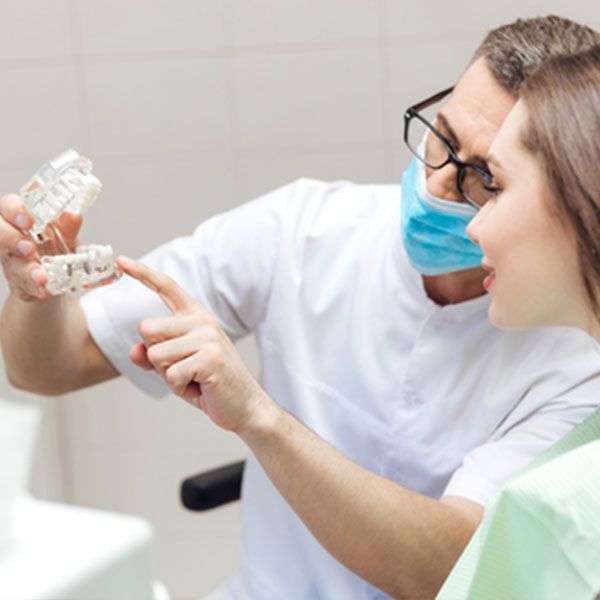Partial & Complete Dentures in Tweed Heads
Restoring Function & Appearance
Dentures are important for restoring the function and appearance of missing teeth, aiming to improve your ability to eat, speak and maintain facial structure. If you’re in need of dentures in Tweed Heads or Southport, look no further than Dentist on Tweed.
Dentures are a custom moulded fitting that can be taken out and put back in, used to replace missing teeth. Two types of dentures are available to assist in this process: partial dentures, for when natural teeth still remain, and complete dentures, which replace all teeth.
If you’d like to discuss dentures or arrange an appointment, call
07 5536 1582.
Comprehensive dental services
Family-friendly practice
emergency dental care
Benefits Of Dentures
As well as the obvious reason for being able to eat and speak easier, dentures can help reduce facial sagging, and in the case of partial dentures, prevent any remaining teeth from shifting.
Our dentures at Dentist on Tweed are custom made. This helps to minimise discomfort and make for easier wear.
To speak to our dental prosthetist, Rob Heron, about having dentures made for your situation, please contact us today.









